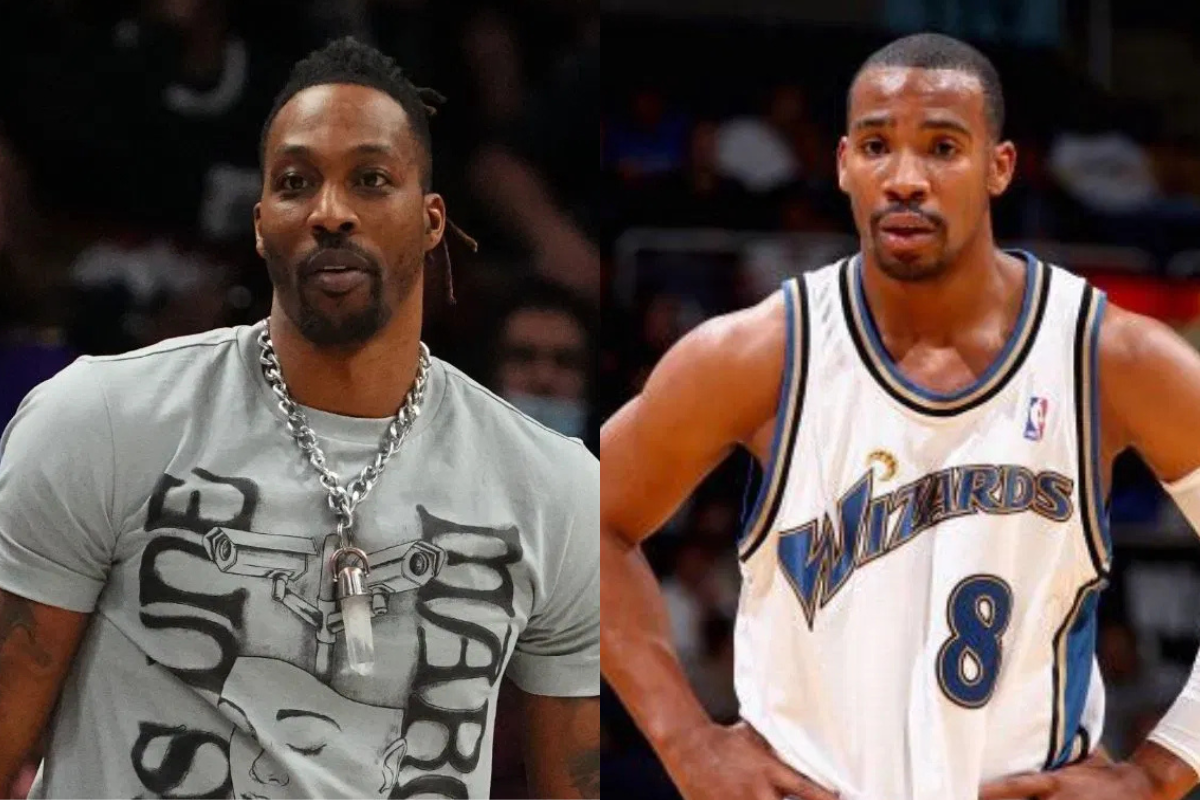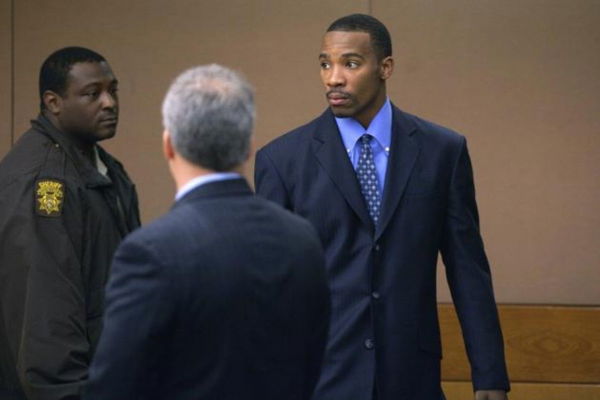
Imago
Apr 10, 2022; Denver, Colorado, USA; Los Angeles Lakers center Dwight Howard (39) during the second half against the Denver Nuggets at Ball Arena.

Imago
Apr 10, 2022; Denver, Colorado, USA; Los Angeles Lakers center Dwight Howard (39) during the second half against the Denver Nuggets at Ball Arena.
With guns in hand comes control over the mind. But on August 19, 2011, everything wasn’t in control. At least not for this former NBA player. Javaris Crittenton fired shots from a vehicle in Atlanta, targeting an individual he believed had robbed him earlier. However, the bullets struck 22-year-old Julian Jones, a mother of four, who was standing nearby. Jones was hit in the leg, and the injury severed her femoral artery, resulting in her death. Crittenton was arrested on August 29, 2011, at John Wayne Airport in California while attempting to return to Atlanta. In April 2015, Crittenton accepted a plea deal, admitting guilt to voluntary manslaughter and aggravated assault. The state sentenced him to 23 years in prison. His cousin, Douglas Gamble, who drove the vehicle during the shooting, pleaded guilty to aggravated assault and received a three-year prison term.
Watch What’s Trending Now!
Crittenton served roughly 10 years before authorities released him from prison in April 2023. The court placed him under strict probation and community service requirements. In 2025, Netflix revisited the case in its documentary. “Untold: Shooting Guards,” which examined Crittenton’s career, his rivalry with former teammate Gilbert Arenas, and the circumstances that led to the fatal shooting. In the final minutes of the documentary, the producer asked Vince Velasquez, the APD detective who first arrested Crittenton, “How did Javaris get out of prison?”
Velasquez’s answer was simple: “I was shocked.” Unable to digest, he added, “How does that happen? How does someone who took the life of an innocent mother of four get out after ten years on a 23-year bid? Couldn’t understand it. There was a deal that was made between Javaris’ attorney and the district attorney at the time that Javaris Crittenton could get out of prison after ten years under certain conditions: Keeps his nose clean, community service, house arrest etc., etc.” This statement was followed by a cameo of Javaris, who said: “A lot of people don’t get these opportunities, man. I got a second chance. God has been good. God has been merciful.”
ADVERTISEMENT
Velasquez’s statement continued, and he shared what the victim’s family had been through. “Typically, when those deals are made, the DA’s office includes the family and gets a temperature of how they feel about it. But this deal was made without consideration of the Jones family. They were blindsided. They had no idea. I’ve investigated over 1,000 murders, and I’ve never, ever, ever seen where the family was not consulted.” After this, June Woods, the victim’s adoptive mother, appeared on the scene to share her painful moments. “Evidently, they struck a deal with him, and we not knowing nothing about it. So I’m still trying to figure that out right there.”
Velasquez then continued to share his opinion on the situation. He said, “What I understand, Javaris went to high school with future NBA player Dwight Howard. Dwight Howard’s uncle is Paul Howard, who was a DA when Javaris Crittenton was prosecuted. One can only imagine that that may have had some influence on that deal. And this family didn’t get the justice I think that they deserved. In my opinion, Javaris Crittenton would still be in prison had that relationship not existed.”
ADVERTISEMENT

ADVERTISEMENT
Gilbert Arenas and Javaris Crittenton’s untold story that brought the NBA into action
The documentary ‘Untold: Shooting Guards’ begins by contrasting the early lives of Gilbert Arenas and Javaris Crittenton, the two NBA players whose paths fatally crossed. Arenas, a charismatic but unpredictable talent, rose from a challenging childhood in Los Angeles. Crittenton, seeking belonging in Atlanta, struggled with gang ties despite his basketball promise. Their shared tenure with the Washington Wizards set the stage for a shocking confrontation that would alter both lives.

USA Today via Reuters
Apr 3, 2012; Memphis, TN, USA; Memphis Grizzlies point guard Gilbert Arenas (10) dribbles the ball up the court during the second half against the Golden State Warriors at the FedEx Forum. The Memphis Grizzlies defeated the Golden State Warriors 98-94. Mandatory Credit: Spruce Derden-USA TODAY Sports
Tensions erupted in December 2009 over a $1,100 card game debt. Arenas, known for pranks, placed unloaded guns on Crittenton’s locker chair with a taunting note. Crittenton retaliated by brandishing his own “un-loaded” weapon, creating a standoff that terrified teammates. The NBA suspended both players, ending their seasons, but Crittenton wasn’t lucky. The killing brought down his career. The incident became more than just a notorious symbol in professional sports. It was the beginning of something worse for Crittenton.
ADVERTISEMENT
Arenas’ reputation never fully recovered, leading to an early retirement. Crittenton’s life spiraled: from a 23-year prison sentence, reduced to 10. Released in 2023, he now speaks to at-risk youth, while the documentary underscores how fleeting conflicts can derail lives. A podcast reunion between the two offered remorseful closure, framing their story as a cautionary tale about consequences and redemption.
ADVERTISEMENT
ADVERTISEMENT
ADVERTISEMENT